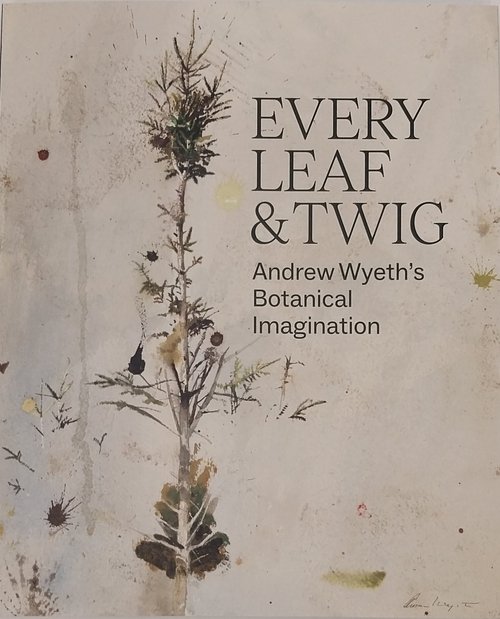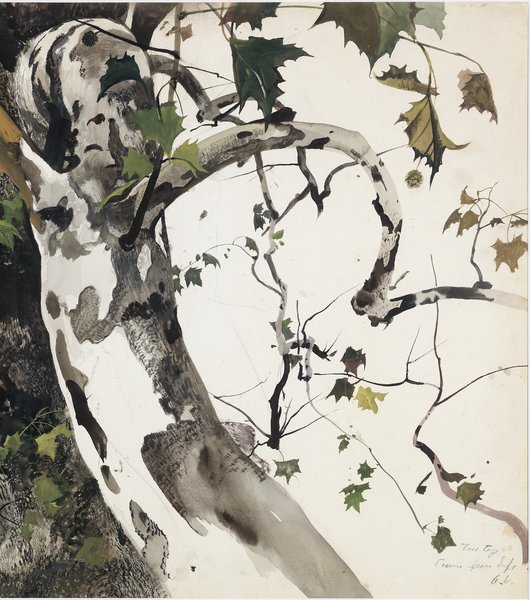
Every Leaf & Twig: Andrew Wyeth’s Botanical Imagination
October 3, 2024–January 5, 2025, Vicki Netter Fitzgerald Gallery
Inspired by a line from Henry David Thoreau’s 1854 book, Walden, or Life in the Woods, Every Leaf & Twig: Andrew Wyeth’s Botanical Imagination explores the artist’s lifelong admiration of the influential naturalist and his own sustained engagement with the natural world.
Inspired by a line from Henry David Thoreau’s 1854 book, Walden, or Life in the Woods, Every Leaf & Twig: Andrew Wyeth’s Botanical Imagination explores the artist’s lifelong admiration of the influential naturalist and his own sustained engagement with the natural world. Between his birthplace of Chadds Ford, Pennsylvania and his summers spent in coastal Maine, Wyeth was exposed to two distinct climatic zones—one lush and temperate, the other rocky and cool—and he found in each a trove of imaginative potential. More visionary than scientific, Wyeth’s resulting “plant portraits” are, at times, vaguely anthropomorphic. They also revel in nature’s organic abstraction and embrace pure pattern and surface, brilliantly capturing the essence of regional flora and the larger environmental networks to which they belong. Examining Wyeth’s rootedness in the landscapes of Pennsylvania and Maine through an ecocritical lens, Every Leaf & Twig brings together these twin ecosystems and considers the artistic response each inspired.
Featuring nearly 35 works on paper drawn from the holdings of the Wyeth Foundation for American Art, many never before seen by the public, Every Leaf & Twig reveals the environmental stakes of Wyeth’s botanical drawings and watercolors, both as visual records of species and environments threatened by contemporary ecological crises and of his own creative study and stewardship of these fragile—and deeply personal—ecosystems.
Every Leaf & Twig: Andrew Wyeth’s Botanical Imagination is organized by the Brandywine Museum of Art in association with the Farnsworth Art Museum and the Wyeth Foundation for American Art.
Support for Every Leaf & Twig: Andrew Wyeth’s Botanical Imagination is generously provided by CT Department of Economic and Community Development, CT Humanities, and the Charles M. and Deborah G. Royce Exhibition Fund.

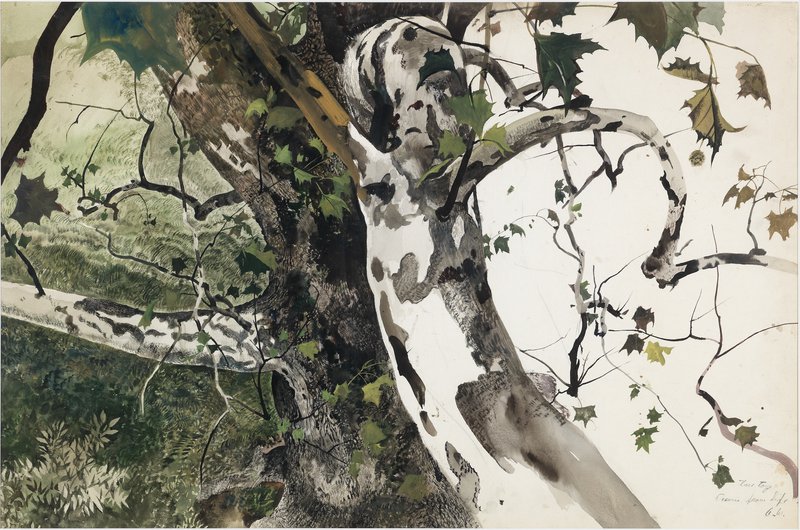
Andrew Wyeth (American, 1917–2009)
Buttonwood, Study for The Hunter, 1943
Drybrush watercolor, 19 ½ x 29 ½ in.
Collection of the Wyeth Foundation for American Art, B0575r
© 2024 Wyeth Foundation for American Art/Artists Rights Society (ARS), New York
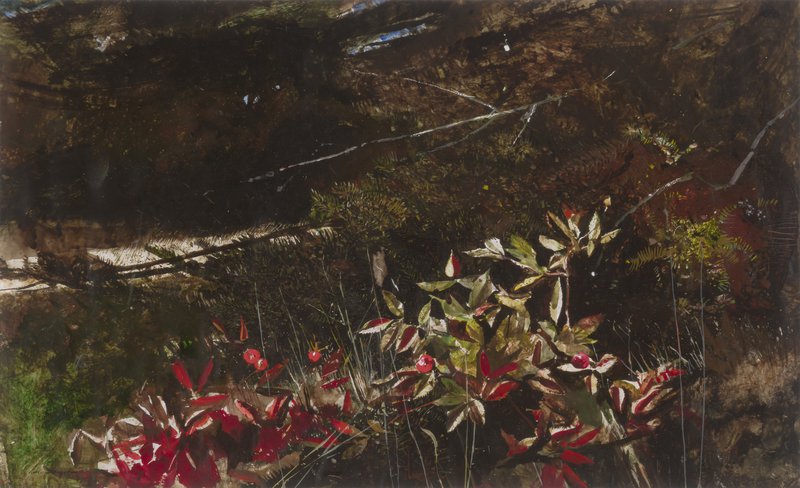
Andrew Wyeth (American, 1917–2009)
Rose Hips, 1981
Watercolor, 13 x 22 ¼ in.
Collection of the Wyeth Foundation for American Art, M1978
© 2024 Wyeth Foundation for American Art/Artists Rights Society (ARS), New York
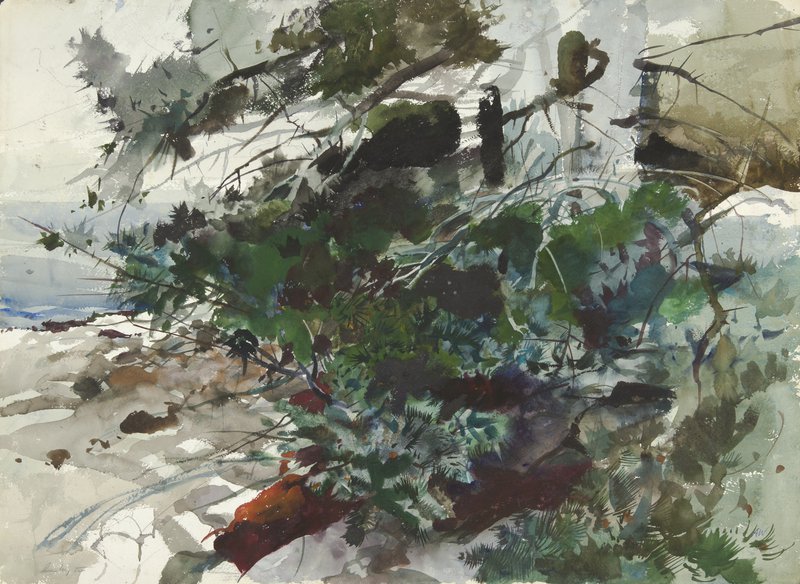
Andrew Wyeth (American, 1917–2009)
Coot Hunter Study, 1941
Watercolor, 21 ½ x 29.38 in.
Collection of the Wyeth Foundation for American Art, M1059
© 2024 Wyeth Foundation for American Art/Artists Rights Society (ARS), New York
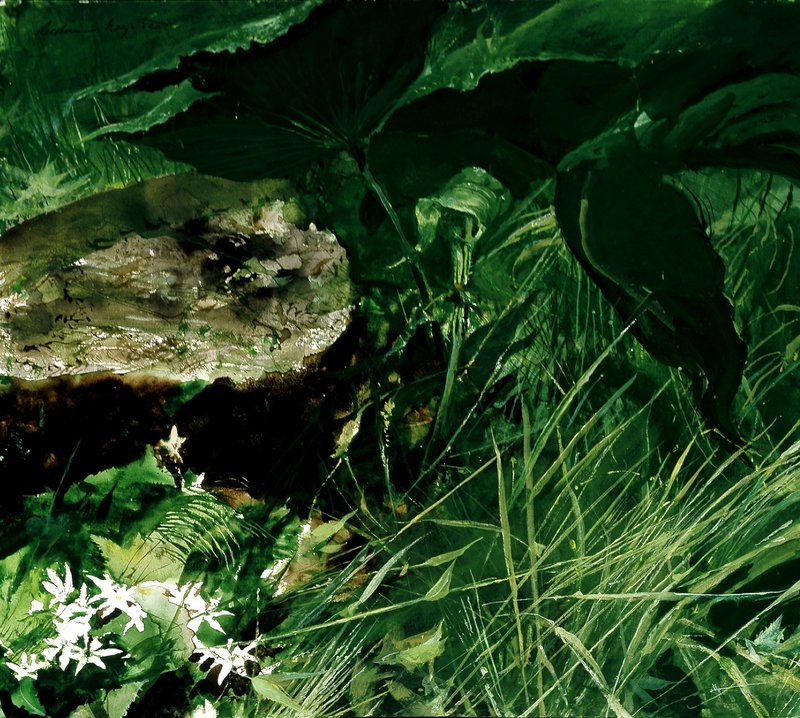
Andrew Wyeth (American, 1917–2009)
Secret, 2008
Watercolor, 16 ⅞ x 19 in.
Collection of the Wyeth Foundation for American Art
© 2024 Wyeth Foundation for American Art/Artists Rights Society (ARS), New York
Every Leaf & Twig: Andrew Wyeth’s Botanical Imagination gallery case display letters
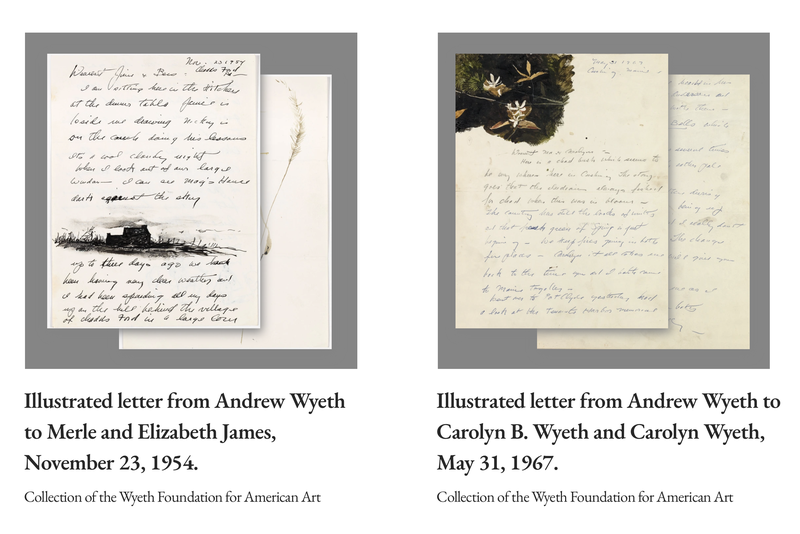
Exhibition Catalog:
EVERY LEAF & TWIG ANDREW WYETH’S BOTANICAL IMAGINATION
This book and exhibition tell the story of the pictorial possibilities Andrew Wyeth found in the fragile rhythms and intimate dramas of plant life. The spectacular watercolors and drawings within, most of which have never been seen before, show an artist engaged with the history of botanical art, sensitive to the cycles of the natural world, and reimagining the trees and flowers he encountered in his walks to serve his goals as an artist. As visionary and poetic responses rather than scientific illustrations, they reveal an insufficiently understood aspect of the work of an iconic American artist – an especially timely one as the web of botanical relationships that inspired Wyeth is being impacted by rapid changes in the very ecosystems he inhabited.
Included are essays by Amy C. Morey, William L. Coleman, and Lauren Stockwell
